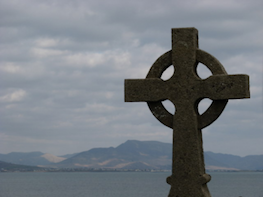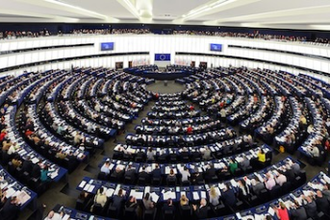Northern Ireland Bishops' letter ahead of abortion vote

Source: Irish Catholic Media Office
The Catholic Bishops of Northern Ireland have reissued their call on Members of the Northern Ireland Assembly to oppose new abortion regulations introduced by the Westminster Parliament, in advance of an Assembly debate on the issue tomorrow.
Describing the Westminster regulations as 'an unjust law, which was imposed without the consent of the people of Northern Ireland', the Bishops urged the politicians 'to take steps to formulate new Regulations that will reflect more fully the will of a significant majority of the people in this jurisdiction to protect the lives of mothers and their unborn children.' With the motion in the Assembly specifically calling on MLAs to reject "the imposition of abortion legislation which extends to all non-fatal disabilities, including Down's syndrome", Bishops expressed concern about the 'extreme nature' of the Westminster regulations and called on them to defend the equal right of children with disabilities to appropriate protection and care both before and after birth, as enshrined in the UN Convention on the Rights of Persons with Disabilities and the UN Convention on the Rights of the Child.
In a series of messages on social media earlier today, Archbishop Eamon Martin called on people to contact their MLAs in advance of the vote, asking them to support the motion. Thanking those politicians who had brought the motion forward, Archbishop Martin described the Westminster regulations imposed on Northern Ireland in a series of tweets as 'unjust, extreme and inhumane - they go much further than 1967 Abortion Act - imagine taking the life of an unborn child because the child has a cleft lip! These regulations offer no gestational limits for children with disabilities. Let's take a stand for the equal right to life and care for all children, before and after birth, as well as their mothers.' The Archbishop concluded by calling on people to contact their MLA's, asking them to 'defend life and equality for the unborn'.
The letter sent by the Northern Bishops to all MLAs in advance of the debate on the motion in the NI Assembly tomorrow follows:
Dear Member of the Legislative Assembly,
As the Catholic Bishops of Northern Ireland, we have a responsibility to do all we can to promote a culture of care and respect for life in our society. This includes a responsibility to inform the conscience of all members of the Catholic Church and people of good will regarding the fundamental moral values at stake in the issue of abortion.
Our opposition to the new abortion Regulations brought into effect here by the Westminster Parliament is rooted in the Catholic Church's teaching concerning the dignity of every human life, regardless of age, ability, gender or background. This teaching prohibits the direct and deliberate intention to end the life of an unborn baby at any stage of his or her development. This right to life of the child is inextricably linked to the right to life and well-being of the mother.
At the same time, we recognise that the legislation passed into law by the Westminster Parliament stands now to be implemented. While we regard this to be an unjust law, which was imposed without the consent of the people of Northern Ireland, we are morally obliged, wherever possible, to do all we can to save the lives of unborn children, which could be lost through abortion, and to protect mothers from the pressures they might experience at the time of an unplanned pregnancy. We trust that you recognise this to be an obligation we all share as concerned citizens and public representatives.
In our recent press statement (31 March 2020), regarding the new Regulations concerning abortion services, we indicated that we would be contacting MLAs with regard to the issues we have highlighted. We believe, 'Politicians and all people of good will, who recognise the extreme nature of the Regulations, should not meekly acquiesce to their promulgation'.
In particular, we take this opportunity to encourage you to debate these Regulations as a matter of urgency. Insofar as they exceed the requirements of the Northern Ireland Act 2019, we urge you to take steps to formulate new Regulations that will reflect more fully the will of a significant majority of the people in this jurisdiction to protect the lives of mothers and their unborn children. Indeed, as the NIO has noted, this commitment to protect life was expressed by 79% of people, who responded to the consultation exercise conducted by the UK Government last December.
As the Catholic Bishops of Northern Ireland we are eager to enter into dialogue with MLAs from across the political parties in an attempt to explore, where possible, how new Regulations can be formulated, which express the will of most people in our society to support and protect the lives of mothers and their unborn children. As a first step, we have included with this letter our recent submission (see below) to the Westminster Scrutiny Committee dealing with the relevant legislation, for your consideration.
We are very conscious that you and all MLAs are under great pressure at this time, due to the Covid-19 pandemic and the many issues you are called upon to address every day. However, we trust that within the Assembly, time can be made to undertake the initial debate that is so urgently needed regarding these extreme Regulations.
We look forward to hearing from you about these issues in due course.
Wishing you every blessing and strength in your important work,
Yours sincerely,
Most Rev Eamon Martin DD
Archbishop of Armagh
Apostolic Administrator of Dromore
Most Rev Noel Treanor DD
Bishop of Down and Connor
Most Rev Donal McKeown DD
Bishop of Derry
Most Rev Larry Duffy DD
Bishop of Clogher
Most Rev Michael Router DD
Auxiliary Bishop of Armagh
Submission to the Joint Committee on Statutory Instruments on the Abortion (NI) Regulations 2020 - 3 April 2020
Preamble
As Catholic Bishops our opposition to the new Regulations is rooted in the Catholic Church's teaching concerning the dignity of every human life, regardless of age, ability, gender or background. This teaching prohibits the direct and deliberate intention to end the life of an unborn baby at any stage of his or her development. This right to life of the child is inextricably linked to the right to life and well-being of the mother.
At the same time, we recognise that the legislation passed into law by the Westminster Parliament stands now to be implemented. While we regard this to be an unjust law, which was imposed without the consent of the people of Northern Ireland, we are morally obliged, wherever possible, to do all we can to save the lives of unborn children, which could be lost through abortion, and to protect mothers from the pressures they might experience at the time of an unplanned pregnancy.
To that end, we seek to highlight the Regulations, so that even when the legislation is being scrutinised by the relevant committees, consideration can be given to the fact that section 9 of the Executive Formation (Northern Ireland) Act 2019 Act was passed by parliament with the unexpected use of statutory powers and that there are special reasons which call for proper scrutiny of the extraordinarily sensitive issues by the Northern Ireland Assembly.
The context in which section 9 of the Executive Formation Act was passed into law:
· Abortion is a devolved matter for the Northern Ireland Assembly
· The Northern Ireland Assembly had clearly voted to retain the existing law.
· The law is now set out in section 9 of the Northern Ireland Executive Formation Act 2019 ("the Act"). The Secretary of State for NI is required to implement the recommendations of the CEDAW report at paragraphs 85 and 86.
The Overreach of the Regulations
· Despite a context in which significant constitutional questions were raised by the passing of the Act, the Regulations go far beyond the requirements of the CEDAW recommendations.
· Regulations must be made which appear to the Secretary of State to be necessary and appropriate. For the reasons outlined below the Regulations go far beyond what is necessary. Further, in the context that pertains, namely that section 9 concerned a devolved matter, the Regulations were inappropriate in exceeding what was strictly required.
· Set out below are a number of the discrete areas, where the Regulations overreach and take the law beyond what the recommendations of CEDAW require. It is accepted that the CEDAW report at paragraphs 85 and 86 is not written in the style of a parliamentary draftsman, but nevertheless the appropriate course in transposing the recommendations into Regulations, is to adopt measures, which are proportionate, having regard to the CEDAW recommendations and the context in which the section 9 of the Act was passed.
(i) CEDAW does not require abortion for any reason up to 12 weeks as now permitted.
(ii) The incorporation of the provisions of section 1 of the Abortion Act 1967 into the Regulations provides for abortion in almost all circumstances up to 24 weeks. There is no gestational limit laid down by the CEDAW Report and the current 24 week time limit in England Wales and Scotland is among the most permissive in Europe.
(iii) The inclusion of the word "seriously disabled" in respect of fetal abnormality in Regulation 7 of the Regulations eclipses and goes significantly beyond the wording of the language of CEDAW. Paragraph 85 of CEDAW refers to "severe fetal impairment which includes FFA " The language of Regulation 7 of the 2020 Regulations mirrors the amendment to the Abortion Act[1] 1967, which refers to a substantial risk that the child would be "seriously handicapped". This diminution of the language was clearly unnecessary and inappropriate. The manner in which the English and Welsh provision of "seriously handicapped" has been interpreted by Courts and prosecuting authorities reveals that the widest possible margin is allowed, including in one instance a child aborted because of a cleft palate[2]. It should be recalled that the UK has ratified the UN Convention on the Rights of Persons with Disabilities in 2009, which requires appropriate protection before as well as after birth for those born with a disability.[3]
(iv) Additionally and inter alia the Regulations omit to provide an appropriate inspection framework for abortions, sufficient conscience protection for all medical professionals and proper counselling provision for those considering an abortion.
Conclusion
It is understood that the Committee must act within its own Terms of Reference. There are nevertheless substantial and relevant matters, which we believe should be brought to the attention of parliament in the Committee's report.


















